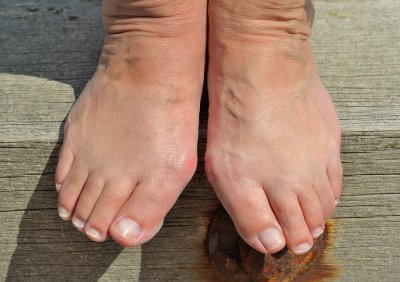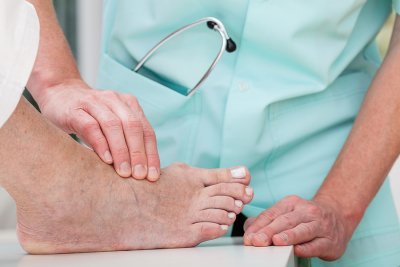Common Questions About Revision Bunion Surgeries
Bunions can be quite frustrating for patients, especially when they’ve already had bunion surgery once. It isn’t uncommon for initial bunion surgeries to fail, leading to the need for revision surgeries. If your bunion recurs, your foot pain persists, or your toe is uncomfortably stiff, it may be time to talk to a podiatrist in Sugar Land about having a second bunion surgery.

Should I Consider Having a Revision Bunion Surgery?
You and your foot specialist will discuss this issue at length. Revision surgery isn’t right for every patient with bunion surgery failure, but it may be right for you if you experience post-surgical arthritis, bone necrosis, compromised foot function, or severe stiffness. Overcorrection and under-correction are also possible reasons for considering a bunion revision. When you’re making your decision, consider the extent to which your symptoms interfere with your daily activities or affect your quality of life. Consider your level of commitment to strictly following your post-surgical discharge instructions. The recovery and rehabilitation processes are crucial for a successful outcome. Your doctor will also consider your overall health when determining if you’re a good candidate for surgery, including whether you have compromised nerve function or blood flow.
Are There Any Additional Risks?
Yes. Revision bunion surgery is far more challenging than the original surgery. It’s essential to work with a podiatrist who has extensive experience performing revision surgeries, as these surgeries often require fixing the technical mistakes made by the original surgeon. The risks associated with any surgery include adverse reactions to the anesthesia, blood clots, bleeding, infections, and damage to nearby blood vessels and nerves. The risks specifically associated with this surgery include the failure of the bone to heal, problems with blood circulation, nerve damage, and prolonged foot swelling.
What Is the Recovery Process Like?
To obtain a successful outcome for your revision surgery, it’s essential not to rush your recovery. It’s possible that a full recovery will take four to six months. You’ll be asked to keep weight off the affected foot for quite some time, perhaps for six to eight weeks. It’s important to plan your recovery carefully by making any necessary home modifications, arranging for help around the house, and taking enough time off work.

